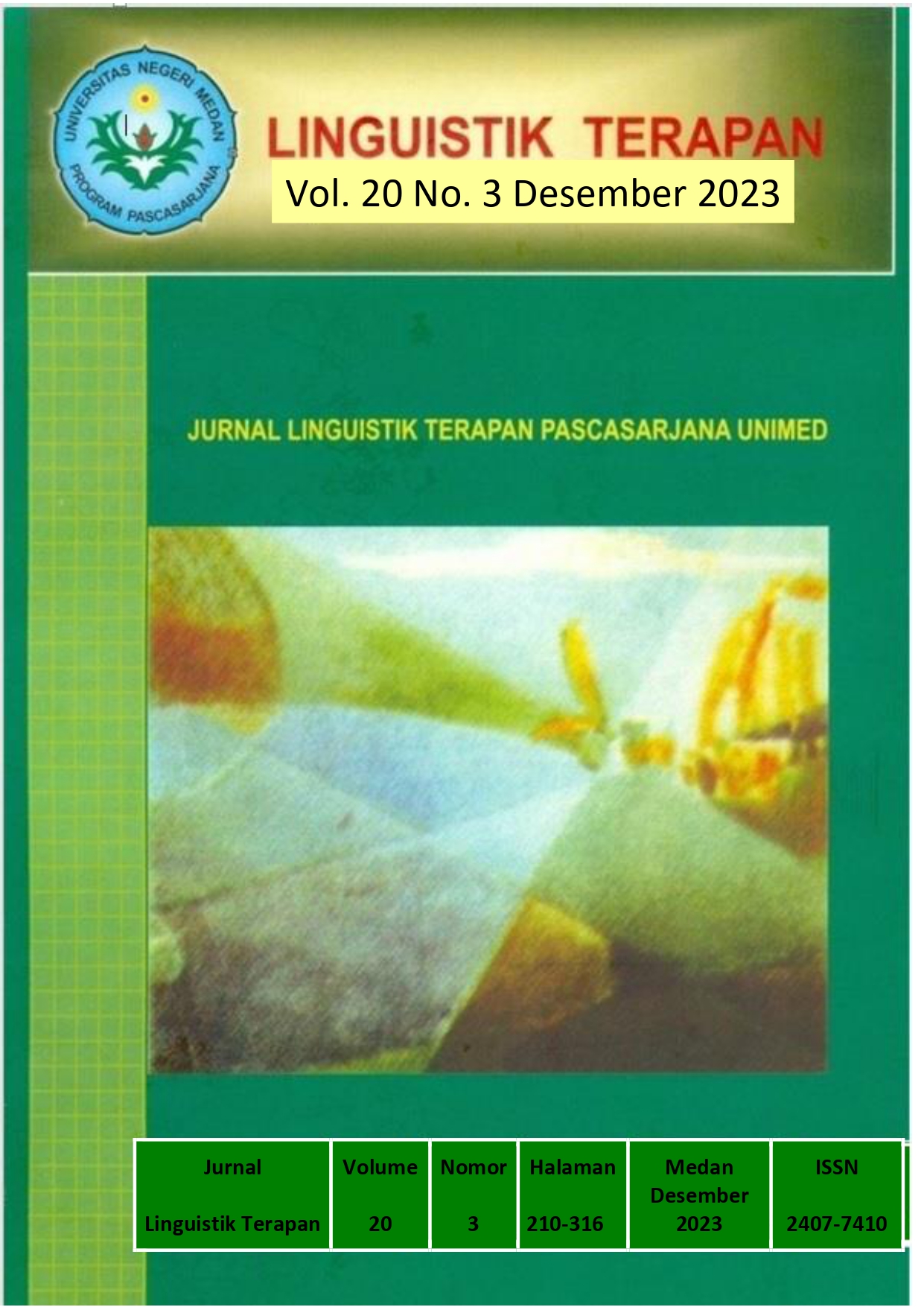IMPOLITENESS STRATEGIES OF RON DESANTIS' PRESIDENTIAL ELECTION SPEECH
DOI:
https://doi.org/10.24114/lt.v20i3.58568Keywords:
Impoliteness, Language, Speech, YouTubeAbstract
This comprehensive study embarks on an exploration of incivility strategies manifested in YouTube comments on a political speech by Ron DeSantis, aiming to uncover the intricacies of digital communication and its influence on public discourse. By carefully analysing viewers' comments, this study employs a qualitative methodology to categorise incivility into five different strategies: negative incivility, sarcasm, baldness, positive incivility, and withheld politeness. This classification was crucial in identifying the dominant use of negative incivility, which emerged as the most common strategy among viewers, indicating a direct approach to criticism and disagreement. It was followed by sarcasm and bald on record strategies, which highlighted layered interactions that not only facilitated dissent, but also served to entertain and foster a sense of community among viewers. Although observed less frequently, positive incivility and withheld politeness strategies were also noted, contributing to the diverse spectrum of incivility in digital discourse. The research further delved into the motivations behind the impolite utterances, and revealed that the main drivers were expressing negative feelings towards the utterance or speaker, the desire to entertain, and the intention to advocate for change. In conclusion, this study highlights the complexity of online communication, especially in politically charged contexts, and emphasises the role of digital platforms in shaping public discourse. The study suggests that future research be extended to various digital platforms and cultural contexts to deepen the understanding of online interactions and their evolving nature, thus contributing significantly to the broader discourse on digital incivility and its implications for public dialogue.References
Arrasyd & Hamzah. (2019). Impoliteness Strategies in Youtube Comment Section Found in Indonesian Presidential Debate 2019. Journal of English Language & Literature, Vol. 8.
Collins, T. (2005). Health Policy Analysis: A Simple Tool for Policy Makers. Public Health, 119, 192-196.
Culpeper, J. (1996). Towards an Anatomy of Impoliteness. Journal of Pragmatics, 25: 349-367.
Culpeper, J. (2005). Impoliteness and Entertainment in the Television Quiz Show: The weakest link. Journal of Politeness Research, Vol 1, pp. 35-72.
Culpeper, J. (2010). Conventionalised impoliteness formulae. Science Direct, 15.
Dasa, A. & Herring, S, C. (2015). Greetings and Interpersonal Closeness: The Case of Bengalis on Orkut. Bangla Greetings and Interpersonal Closeness, 20.
Eelen, G. (2001). A Critique of Politeness Theories. Manchester: St. Jerome Publishing.
Purwati, E, D., Wildianto, D., Rani, A. (2022). Language Impoliteness in the Comment Section of Baim Wong Youtube Channel. Bahasa: Jurnal Keilmuan Pendidikan Bahasa dan Sastra Indonesia, 10.
Halpern, D. & Gibbs, J. (2013). Social Media as a Catalyst for Online Deliberation? Exploring the Affordances of Facebook and YouTube for Political Expression. Computers in Human Behavior, 29, 1159-1168.
Herring, S. C. (2001). Computer-Mediated Discourse. In D. Tannen, D. Schiffrin, & H. Hamilton (Eds.), Handbook of Discourse Analysis (pp. 612-634). Oxford: Blackwell.
Herring, S. (2004). Computer-Mediated Discourse Analysis: An Approach to Researching Online. Research Gate, 36.
Novalia, A. & Ambalegin, A. (2022). Impoliteness Strategies Found in Deddy Corbuzier's Podcast on YouTube. E-Journal of Linguistics, 9.
Suler, J. (2004). The Online Disinhibition Effect. Cyberpsychology and Behavior, 7, 321-326.
Thomas, J. (1995). Meaning in Interaction: An Introduction to Pragmatics. London: Longman.
Watts, J. (2003). Politeness. Cambridge: Cambridge University Press.
Downloads
Published
How to Cite
Issue
Section
License
Copyright (c) 2024 Firstananda Jenni Yulieta Siagian

This work is licensed under a Creative Commons Attribution-ShareAlike 4.0 International License.






